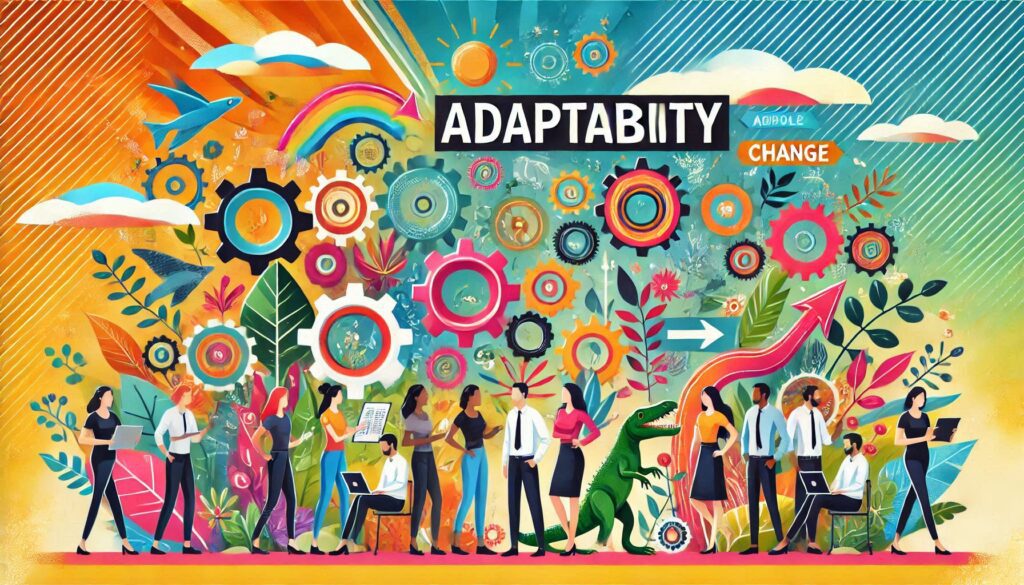
Molly S.
Business-savvy enthusiast with a mindset on growth and advocate for mental health!
Updated by Molly S. on 1/14/25
In 2025, one thing is certain: change will be constant. From advancements in artificial intelligence to evolving workplace cultures, the speed at which industries transform requires professionals to not only stay informed but also to embrace a mindset of flexibility and growth. This is where adaptability becomes one of the most important skills for career success.
Why Adaptability Matters More Than Ever
The modern workplace is no longer about sticking to a rigid career path or simply mastering a specific set of skills. In 2025, the job market will reward those who can pivot quickly, acquire new knowledge, and thrive in uncertain conditions. In fact, studies have shown that 85% of jobs in 2030 have yet to be invented, which means professionals will need to stay agile, constantly evolving alongside new opportunities.
In this fast-paced environment, adaptability isn’t just about technical skills. It’s about adjusting to new challenges, shifting mindsets, and navigating an ever-changing landscape—whether that’s a new technology, a new team, or a new industry.
Key Strategies to Master Adaptability
- Embrace Lifelong Learning: In 2025, the most adaptable professionals will be those who actively pursue learning, whether through formal education, online courses, or self-guided projects. Upskilling and reskilling will be essential to keep pace with technological advancements, especially in fields like AI, cybersecurity, and data science. Tip: Dedicate time every month to learn something new—whether it’s a technical skill or an emerging business trend.
- Develop a Growth Mindset: Those with a growth mindset—believing that abilities and intelligence can be developed through hard work and perseverance—will thrive. In the face of setbacks or challenges, they’ll see opportunities for growth, rather than viewing obstacles as failures. This approach enables individuals to approach change as a learning experience rather than something to fear. Tip: Practice reframing challenges as opportunities for growth and focus on continuous improvement.
- Stay Tech-Savvy: As technology continues to reshape industries, having a basic understanding of emerging tools and platforms will be vital. Being adaptable means not only using new technologies effectively but also being open to how they can improve your work processes or even open up new career avenues. Tip: Take the time to explore tools like AI-powered project management systems or collaborative software that enhance remote work.
- Cultivate Emotional Intelligence: Adaptability is often linked to emotional intelligence (EQ)—the ability to understand and manage your own emotions, as well as recognize and influence the emotions of others. In times of change, your ability to stay calm under pressure and communicate effectively with your team can make all the difference in navigating uncertainty. Tip: Develop your EQ by practicing self-awareness, empathy, and effective communication in both professional and personal settings.
- Be Proactive, Not Reactive: Adaptability isn’t just about responding to change; it’s about anticipating it. Being proactive means identifying trends, staying informed, and preparing for shifts before they happen. By staying ahead of the curve, you’ll be better positioned to leverage new opportunities as they arise. Tip: Regularly review industry reports, attend conferences, or join professional groups to stay on top of emerging trends.
Conclusion: The Future Belongs to the Adaptable
As we look ahead to 2025 and beyond, the ability to adapt to change will be the key to sustainable career growth. The professionals who can navigate the complexities of new technologies, shifting job markets, and evolving workplace cultures will be the ones who not only survive but thrive in the future of work.
Mastering adaptability is more than a survival tactic; it’s a pathway to unlocking new opportunities, building resilience, and ensuring that your career stays relevant in an ever-changing world. So, take the first step today—embrace change, stay curious, and keep evolving. The future is waiting.



